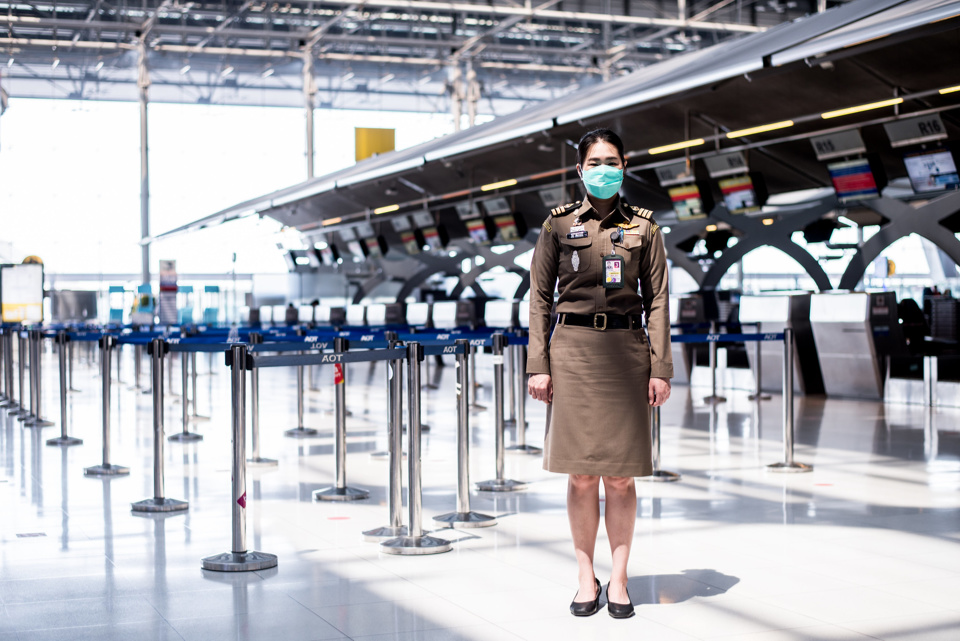From where I stand: “We have to continue working unless we become infected with COVID-19”
Nicha Nitinavakarn is a police captain working in the Arrival Immigration Bureau at Suvarnabhumi Airport in Bangkok, Thailand, where women make up most of the workforce. Her responsibilities include passport check, entry approval and problem-solving for all arrival issues. She is one of the many women who are part of the essential workforce as four billion people around the world are under stay-home orders to curb the spread of COVID-19.Date:

Every morning I wake up a little worried, so I take my temperature. As an immigration police officer working at the airport, I dealt with hundreds of people [before the lockdown]. I’ve noticed that people are scared, they probably think I might have been infected and am now a silent carrier of the coronavirus.
One of the biggest challenges is my occupational health safety, so I strictly follow [guidance] on sanitizing my hands and the working space with alcohol.
Another challenge I am facing is that policies and regulation can be updated day-to-day, affecting [travelers] as well as those involved in [implementing them]. For example, Thailand imposed an entry ban on certain passport-holders, but the regulation was announced on the same day that some of these passengers were on their way to the country. Therefore, all immigration staff in the front line, including me, had to announce this rule as they arrived at the airport. After hearing this, the passengers were desperate. Staff have had to find solutions to quickly and firmly handle the situation.
This crisis has also affected my mental health. These days, my routine is only going to work and going out to buy food when necessary. I haven’t seen my family in Lampang since the outbreak.
We have to continue working unless we become infected with COVID-19 [and show symptoms]. We have to work same hours now, as we did before COVID-19, even though there are 90% less passengers compared to last year.
Everyone is more stressed and aggressive because of the situation—this is understandable, and I must cope with it. People also trust you less when you’re a woman but wearing this uniform gives me confidence.”
Nicha Nitinavakarn is a 28-year-old Thai national who is taking on the risk of exposure to COVID-19 every day as she goes to work. UN Women is gathering information and data on the gendered impacts of the outbreak and the challenges women are facing in the Asia Pacific region and around the world. Effective response and recovery efforts must put women at the centre and specifically target the socio-economic impact of the outbreak on women and girls.